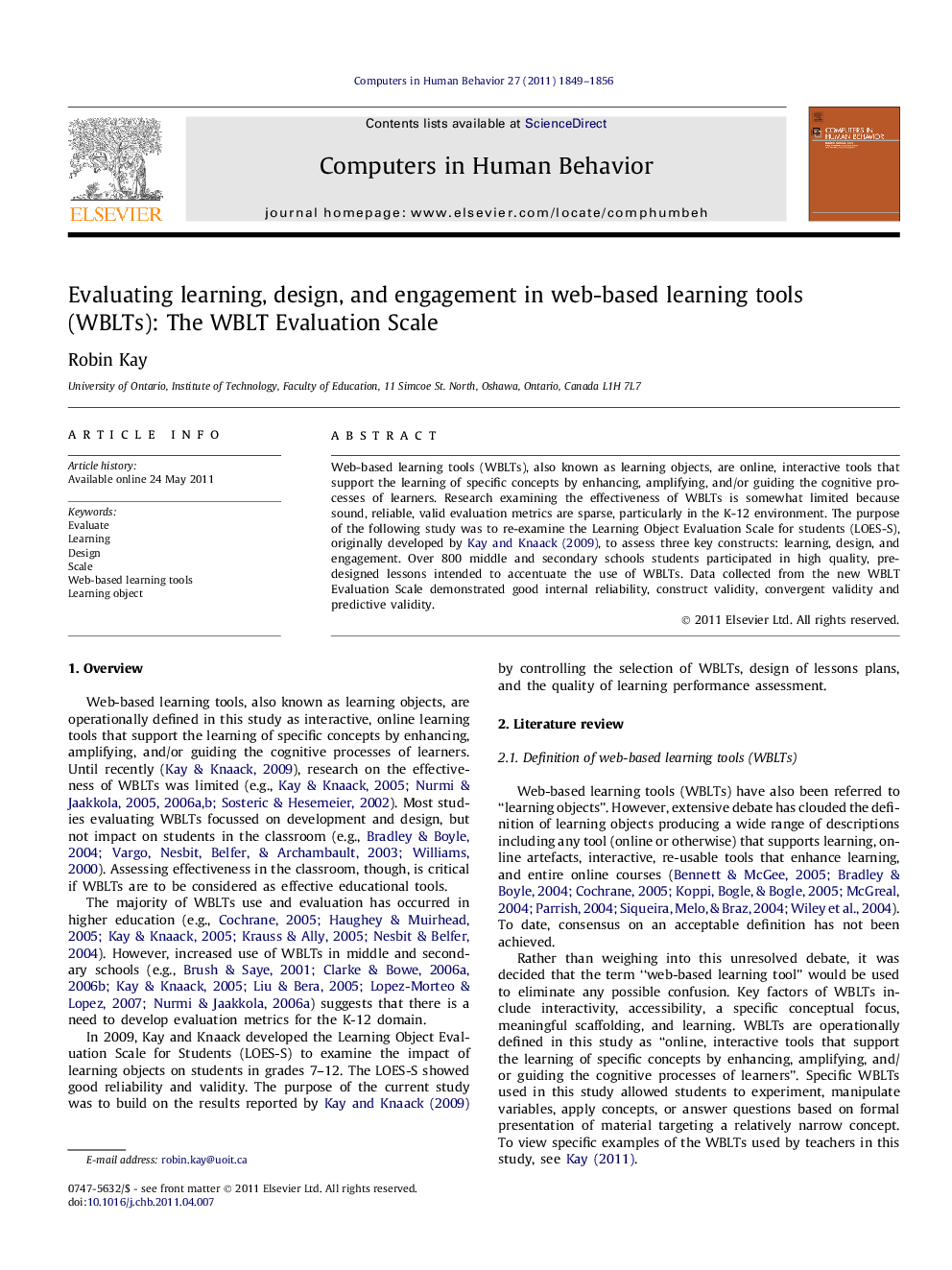| Article ID | Journal | Published Year | Pages | File Type |
|---|---|---|---|---|
| 350995 | Computers in Human Behavior | 2011 | 8 Pages |
Web-based learning tools (WBLTs), also known as learning objects, are online, interactive tools that support the learning of specific concepts by enhancing, amplifying, and/or guiding the cognitive processes of learners. Research examining the effectiveness of WBLTs is somewhat limited because sound, reliable, valid evaluation metrics are sparse, particularly in the K-12 environment. The purpose of the following study was to re-examine the Learning Object Evaluation Scale for students (LOES-S), originally developed by Kay and Knaack (2009), to assess three key constructs: learning, design, and engagement. Over 800 middle and secondary schools students participated in high quality, pre-designed lessons intended to accentuate the use of WBLTs. Data collected from the new WBLT Evaluation Scale demonstrated good internal reliability, construct validity, convergent validity and predictive validity.
► The Learning Object Evaluation Scale designed by Kay and Knaack (2009) was re-examined. ► Three main constructs were assessed including learning, design and engagement. ► The new WBLT Evaluation Scale showed high internal reliability. ► The new scale also demonstrated good construct validity and convergent validity. ► The three scale constructs were significant predictors of learning performance.
